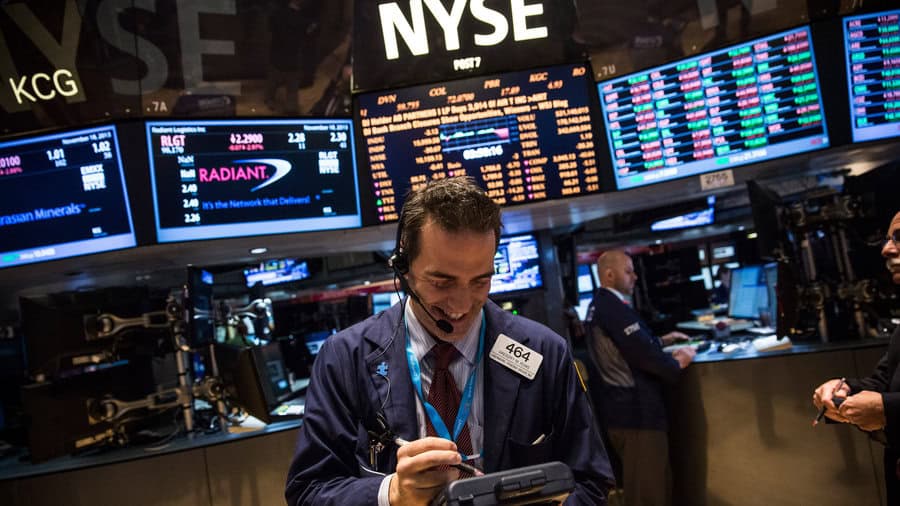
Equities rebounded from earlier losses Thursday afternoon as both bank and technology stocks led the three major indexes higher.
The Dow Jones Industrial Average rebounded 98.46 points to finish at 24,216.05 after briefly falling 100 points earlier in the session, with Boeing as the best-performing stock in the index. The S&P 500 closed 0.62 percent higher at 2,716.31 as financials, technology and telecoms outperformed. The Nasdaq composite finished up 0.79 percent at 7,503.68 as Amazon rose 2.4 percent after buying an online pharmacy.
Shares of J.P. Morgan, Goldman Sachs, Citigroup, Morgan Stanley and Bank of America all rose more than 1 percent lifting the financials sector. Financials entered Thursday’s session having fallen for a record 13 straight sessions; the Financial Select Sector SPDR ETF (XLF) rose 0.9 percent Thursday.
Equities have been under pressure this week, however, as trade tensions between the U.S. and some of its biggest trade partners have mounted. The Dow, S&P 500 and Nasdaq composite all remain down at least 1.4 percent since Monday.
“Although through most of this month the U.S. equity market appeared to be used as a destination for capital, suggesting that rotation was the primary influence, recent sessions have suggested that liquidation has become the order of the day,” said Michael Shaoul, chairman and CEO of Marketfield Asset Management.
Behind all of this “is the confusion and concern generated by the threat of tariff, trade and investment restrictions being imposed on a variety of sectors,” said Shaoul in a note.
On Wednesday, a Trump administration official stated that the government would rely on the U.S. Committee on Foreign Investment to take care of matters concerning foreign purchase of domestic technologies that are deemed sensitive.
Not only is the U.S. in a tit-for-tat war of words with China on tariffs, but now the European Union is involved after President Donald Trump took to Twitter last week to threaten a 20 percent tariff on all car imports from the bloc.
“Investors have no precedent to go off of, so a lot of them are just going to the sidelines,” said Craig Callahan, founder of Icon Advisers. “Most investors are torn: They want to be in stocks because of the earnings, but they want to be out because of the uncertainty. It’s a real balancing act.”
“As long as we’re dealing with trade policies, volatility will remain at the forefront of markets,” said Paul Townsen, managing director at Crossmark Global Investments.
Walgreens Boots Alliance and CVS Health dropped 9.9 percent and 6.1 percent, respectively, after Amazon announced it had bought PillPack, an online pharmacy.
The move likely hints at Amazon’s goal venture into the health-care industry, where it could threaten to remove one of the few distinguishing factors pharmacy chains have relied on to fend off the e-commerce giant, the sale of prescription drugs.

